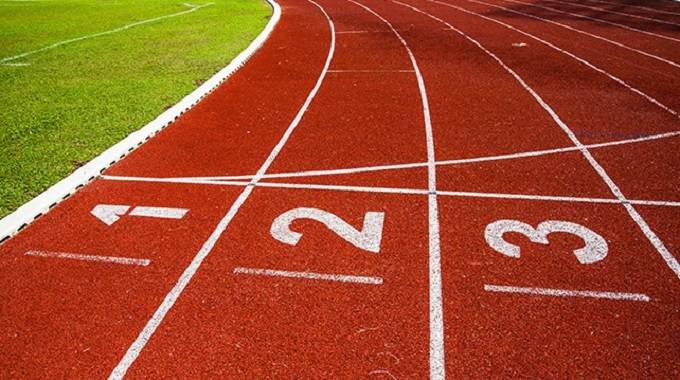Naaz engage SRC over certified tracks

Ricky Zililo, Senior Sports Reporter
NATIONAL Athletics Association of Zimbabwe (Naaz) have engaged the Sports and Recreation Commission (SRC) to assist them get at least one of the country’s facilities certified to host World Athletics (WA) lebelled events.
For a country to bid for hosting rights of WA competitions such as the Diamond, Gold, Silver and Bronze leagues, it must have at least two certified tracks.
Presently, Zimbabwe has five standard 400m tracks at the National Sports Stadium A and B arena, White City Stadium, University of Zimbabwe and the National University of Science and Technology.
Tendai Tagara, the Naaz president, allayed fears that times recorded at the country’s standard tracks were not recognised to qualify for international competitions.
“Contrary to earlier reports that times recorded at the country’s standard tracks are not recognised for qualification to international meets, WA recognises those qualification times as long as we have technical officials education systems (TOEC). Mind you, White City Stadium track is standard and was confirmed at the AUSC Region 5 Games.
“Therefore, athletes can run recognised times at all the standard venues as long as qualified TOEC officials confirm the measurements. We’ve had our athletes qualifying for the World Youth competitions after participating at these facilities and they have gone on to do well at international meets without issues from WA,” said Tagara.
In the past six years, Naaz has been holding TOEC courses in Bulawayo, with WA sending experts to train local athletics officials. TOEC certified officials are recognised by green jackets and white suits that they are at Naaz sanctioned competitions.
“Certified venues give us the opportunity to host labelled events WA Diamond, Gold, Silver and Bronze leagues. The issue of certificating is a recent thing which WA took up and they know challenges that federations have. We have written to SRC and they are considering ensuring upgrades are done for athletics too during renovations at the National Sports Stadium,” Tagara said.
WA says any track that is more than eight years old is not eligible for certification.
This means Naaz has to work with relevant authorities to ensure the White City Stadium track is also endorsed.
To ensure WA approves Zimbabwe’s facilities, they must have good quality surfaces for athletics competition.
Last year, WA passed a resolution that all certificates under the scheme are issued with a maximum five-year validity; approvals may be limited to shorter periods depending on the age of the surface.
WA said under the current scheme, all outdoor facility certificates already existing on January 1, 2019, will be considered expired on December 31, 2023.
The National Sports Stadium track was last renovated 25 years ago ahead of the 1995 All-Africa Games, while the White City Stadium track underwent refurbishment ahead of the 2014 African Union Sports Council Region 5 Under-20 Youth Games, but missed out on the critical element when only a 100m stretch had a tartan surface laid.
WA is aware that renovations may involve re-topping of the existing synthetic surface, but indicated that the product used for re-topping will be shown on the new certificate, although the advice of the laboratory that does the testing might be needed to determine appropriate additional thickness of synthetic and compatibility of the products in order to still meet the Track and Runway Synthetic Surface Testing Specifications.
The cost of certification for an athletics facility is pegged at US$10 000 for a Class One track and US$2 000 for a Class Two track, while extensions for both classes require a payment of US$1 000.
Synthetic products that are part of the tartan laying also have to be certified. If they have certified products, but WA is yet to physically inspect it, then the track will be classified under Class Two.
Only seven African countries have Class One athletics tracks, while 18, including Lesotho, Botswana and Zambia, have tracks that are classified under Class 2, according to a World Athletics list of certified athletics facilities as at May 1, 2020.
Class One athletics tracks are in Algeria (1), Congo Republic (1), Ethiopia (1), Morocco (5), Nigeria (3), South Africa (4) and Tunisia (2).
On a global scale, there are 186 Class One certified athletics tracks in 69 countries, with China having the highest number of 27 followed by Poland with eight.
The United States of America has seven, while Great Britain only has two. — @ZililoR









Comments